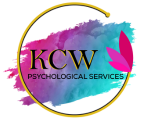
Understanding Resilience
Resilience is the ability to adapt well in the face of adversity, trauma, tragedy, threats, or significant sources of stress. It’s about bouncing back from difficult experiences and growing stronger. At KCW Psychological Services, we believe resilience is a vital component of mental health and well-being. Our holistic, identity-affirming approach helps individuals build this essential trait.
The Importance of Emotional Resilience
Emotional resilience is crucial for navigating life’s challenges. It helps reduce the impact of stress, improves mental health, and enhances overall quality of life. Building resilience can lead to more positive outcomes in personal and professional spheres.

Strategies to Build Resilience
1. Cultivate a Positive Mindset
Developing a positive outlook can significantly impact your resilience. Focus on the good aspects of your life, practice gratitude, and maintain hope even during tough times. Positive thinking doesn’t mean ignoring problems; it means approaching them with a constructive attitude.
Tips for a Positive Mindset:
- Practice Gratitude: Keep a daily journal of things you’re thankful for.
- Affirmations: Use positive affirmations to reinforce your strengths and abilities.
- Reframe Negative Thoughts: Challenge and replace negative thoughts with more positive and realistic ones.
2. Develop Strong Social Connections
Strong relationships provide support and encouragement during difficult times. Invest in relationships with family, friends, and community members. These connections can offer a sense of belonging and security.
Building Social Connections:
- Stay in Touch: Regularly communicate with loved ones.
- Join Groups: Participate in community activities or support groups.
- Seek Support: Don’t hesitate to reach out for help when needed.
3. Practice Self-Care
Taking care of your physical and mental health is foundational to resilience. Prioritize activities that promote well-being, such as exercise, healthy eating, and sufficient sleep.
Self-Care Activities:
- Exercise Regularly: Aim for at least 30 minutes of physical activity most days.
- Eat Nutritious Foods: Maintain a balanced diet rich in fruits, vegetables, and whole grains.
- Sleep Well: Aim for 7-9 hours of sleep each night to rejuvenate your body and mind.
4. Learn from Experiences
Reflect on past experiences and identify what helped you through difficult times. Understanding your coping mechanisms can guide you in future challenges.
Reflective Practices:
- Journaling: Write about your experiences and the lessons learned.
- Mindfulness: Practice mindfulness meditation to stay present and aware.
- Therapy: Consider professional guidance to gain deeper insights.
5. Set Realistic Goals
Setting and achieving goals, even small ones, can boost confidence and provide a sense of accomplishment. Break larger tasks into manageable steps to avoid feeling overwhelmed.
Goal-Setting Techniques:
- SMART Goals: Ensure your goals are Specific, Measurable, Achievable, Relevant, and Time-bound.
- Prioritize: Focus on what is most important and urgent.
Celebrate Progress: Acknowledge and reward yourself for milestones achieved!

The Role of Professional Support

At KCW Psychological Services, we offer tailored support to help you build resilience. Our compassionate and skilled therapists provide personalized strategies that align with your unique needs and identity.
Services We Offer:
- Individual Therapy: One-on-one sessions to address specific concerns.
- Group Therapy: Supportive group settings to share and learn from others.
- Workshops: Interactive sessions focusing on building resilience and other skills.
Benefits of Professional Support:
- Personalized Care: Tailored approaches to meet your individual needs.
- Safe Environment: A confidential space to express yourself without judgment.
Expert Guidance: Professional insights to navigate challenges effectively.
The Science of Resilience
Understanding the Brain
Resilience involves various brain functions, including emotional regulation and cognitive processing. Studies show that resilient people have better connectivity between brain regions involved in these functions, enabling them to manage stress more effectively.
Evidence-Based Practices
Research supports several evidence-based practices for building resilience. For instance, cognitive-behavioral therapy (CBT) is proven to help reframe negative thoughts and enhance coping strategies.
Conclusion: Start Your Resilience Journey Today
Building resilience is a continuous journey that empowers you to face life’s challenges with strength and confidence. At KCW Psychological Services, we are dedicated to supporting you every step of the way. Our holistic, identity-affirming approach ensures that your unique experiences and perspectives are honored.
Are you ready to build your resilience and enhance your emotional strength? Contact us today to schedule an appointment or learn more about our services. Let KCW Psychological Services be your partner in this transformative journey.
Related Articles
Related
Unwrapping Wellness: Managing Holidays and Mental Health
The holidays are here, and so are a variety of emotions that we may experience as we navigate the holiday season. Some people are ready to jump into the holiday spirit, while others are not and only want the year to end as soon as possible. Holidays can cause feelings...
Dia de los Muertos (Day of the Dead) & Grief
Dia de los Muertos (Day of the Dead) and grief are deeply connected to one another. Dia de los Muertos is a cultural celebration of life and memory for deceased loved ones. Originated in Mexico and now being celebrated in other parts of Latin America and the United...
Destigmatizing Mental Health-Raising Awareness One Conversation at a Time
October is Mental Health Awareness Month, so what better way to advocate for mental health than to discuss what mental health is and the stigmas that surround it. Mental health talk has been popularized thanks to social media and TV shows; however, they do not always...




